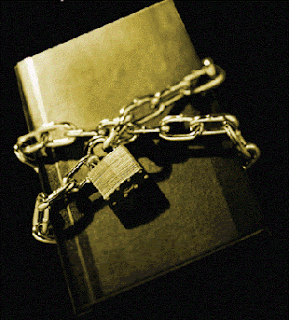Most people in the kidlit world has read or heard about the Wall Street Journal article posted yesterday. Meghan Cox Gurdon, who penned the article, questions the darkness and gore found in today's YA market. She introduces us to a concerned parent trying to find a book for her thirteen year old daughter, only to leave the store with nothing. The article caused a hullabaloo on the web, rallying YA authors to defend the literature being produced.
There is even a Twitter tag (#YAsaves) being used to explain why young adult fiction is necessary. Why it should continue and why it saves lives.
Now, it shouldn't surprise anyone that people who write kidlit are rising up to defend it. It would be silly if they didn't. It's the testimonials from young readers that really pack the punch. Authors sharing stories of a child reading their book and finding comfort.
Comfort in darkness? Really? Yes really. To ignore the way the world is would be dangerous. To not write about it would be just as dangerous. YA literature isn't the darkness. It's the light.
I don't personally know Mrs. Gurdon. I don't know how often she hangs around with teenagers. I can only speak for myself. I've spent the last four years working in a middle school. There is nothing particularly extreme about the school. It's a safe and supportive environment with kids of varying academic abilities preparing for high school. We're pretty Norman Rockwell-ish compared to other schools.
Yet even here, in the bubble, I am increasing amazed by what the kids know about their world. Are they too young to know some of what they know? Probably. That doesn't change that they know it. Did they learn it from books? Perhaps some of them did. More of them learned it from TV, movies, video games and pop culture icons.
And some of them learn it from their own lives. Their own experiences.
Let me put it this way:
You're walking down the street and a starving child is sitting on the curb. Do you offer the child some food or do you walk past them? If you answered the latter, click away from this blog and flee.
You'd feed them. Or you'd find out some way to help them. What good is our society if it doesn't look out for the children?
So what do you do when a kid opens up to you that a parent at home drinks too much and gets angry? Or something happened to them at a party and they don't know what to do. Or they live in a neighborhood that has shootings in the alleys and drug deals on the corners. Do you help these kids or do you walk past them?
Books are tools that help us make sense of the world. Children are at a place in life where everything is about them. No one has ever felt their emotions. No one has ever seen what they've seen. No one could possibly understand.
Except Melinda. And Alice. And Ponyboy. And Kristina.
The list could go on for pages. Thankfully.
Lets be glad for the stories that line the shelves of the young adult section. Our world would be darker without them.
